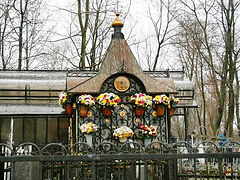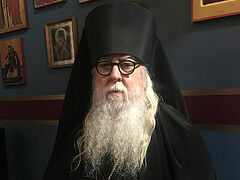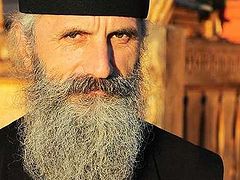When I first received my calling to be a monk, I was sixteen years old. The calling came when I was sitting on a dock on Priest Lake in Northern Idaho. It was my grandfather’s dock for his summer home, and I used to sit on that dock with my Bible and some theological works. In my mind I was wearing a black robe, I was a monk living as a hermit in solitude. That was what I really wanted. I even dreamed that maybe someday, when my grandparents were dead, they would leave me that lake home, so I could live there and do that. Meanwhile I went off to college and to graduate school, and to another career altogether, as a therapist, basically I shoved that idea off along with all my childhood fantasies, I guess.
One day, about forty years ago—time flies—I found myself unhappy and dissatisfied. No relationships, no amount of money, even my cabin on the Oregon coast—none of that meant anything to me. It was all just baggage because there was something, that I sort of felt unfinished inside me and felt wanting. I wanted something that gave me deep, true meaning.
At the time I was an atheist, but I knew there was a spiritual dimension to me, to everybody, everyone. For some of the people that I did therapy, I sensed that that they didn’t have psychological problems but spiritual problems. And I didn’t really know what that meant. But I knew that I was not capable of helping them in that realm. I didn’t like labeling people with psychological labels for insurance purposes. It seemed like a great disservice to them.
Finally, out of total frustration, I took eight months off and traveled. I got a VW bus and some camping equipment, and I took one book with me. It was Herman Hesse’s Siddhartha—Hesse was a German author banned by the Nazis. All of his books, Steppenwolf and The Glass Bead Game among them, were important in my young years in college. But I took that one book because it was a thin book about a young man from India who was a prince. He went on a spiritual quest and ultimately became Gautama Buddha. I took that book with me as the only book because I was on a spiritual quest and I didn’t know where that was going to lead me.
I was a practicing Zen Buddhist at the time, so part of my time I spent at the Zen Center in San Francisco. Most of the time I was alone, living out of my van, walking the Northern California beaches and meeting wonderful people.
Toward the end of that journey, when it was time for me to start looking or make a decision: “Am I going to go back to my job or not?”, “Am I going to continue my career or not?”, I happened to go into The Holy Virgin Russian Orthodox Cathedral in San Francisco for a Sunday Liturgy. I had never attended one before. I have to tell you, when I walked in I was totally transformed, transfigured into another realm.
I didn’t understand what I was experiencing. That I knew the beauty of the cathedral, and the beauty of the liturgical expression of the people’s worship was something that filled me like nothing else had filled me. Ultimately, I didn’t go back, I became Orthodox and I ultimately became a monk.
One of the things that, as an abbot of a monastery, I look for in someone who is looking into monasticism: I would first want to test them, I’d have them with us for a month or two, and get to know them. If I sense that he’s someone running from the world, then that is not a good candidate. If we are running from the world, going into a monastery is not a good place, because a monastery is a microcosm of the world. What we really want to do, what as an abbot I am really looking for, is someone who wants to live a life exclusively for Jesus Christ, who looks to the monastery as a place where he can do what he does on Sundays all week, and not have to compartmentalize his faith. You know, like, “Right now I am at work and I am going to concentrate on my secular job, and then on Sunday and feast days, and Saturday night vigil, that’s when I get to be what I want to be.” If that’s not enough and your heart yearns to take the plunge into a form of Orthodox spirituality that is centered solely in Christ in the Church without distractions of the world, then perhaps you have a monastic vocation.
Another thing that I would look for is someone who loves people. Because if you don’t love people a monastery is not the place. I have in my office at All-Merciful Savior Monastery on Vashon Island a bunch of agates. Each agate is a different size and a different color. My grandfather was a geologist and he had a machine in which he would put his rocks, these pebbles that he would get in rivers. He would put them in there, turn that thing on, and it would go around and around with water inside. Every time the tumbler would move, those little gray rocks, or white rocks—whatever the color they were—would be pounding against each other. It’s like what we do as Christians in Church, in our life in Christ—scraping against each other, pounding against each other, not always liking it, sometimes being really irritated by it. But at the end of the month when my grandfather would open it up and take out all the rocks, they were beautiful, and everyone one of them different. So monastic life is kind of like a tumbler, we’re all spinning around in the waters of baptism. We’re just pounding against each other, being irritated, wishing we had a better abbot or a holier abbot, wishing our brother would do his obediences properly, we could do better than that, but it’s not our obedience. All that stuff is scraping against us, pounding against us in the water of baptism. And then, lo and behold, the tumbler is opened—it’s Jesus that opens the tumbler, and that little gray pebble that we were is now this beautiful red agate, or a blue agate, or a green agate, or a white agate. We’ve been transformed and changed.
So, I would say to someone, if that’s what you want for yourself, then perhaps the monastic life is for you.





